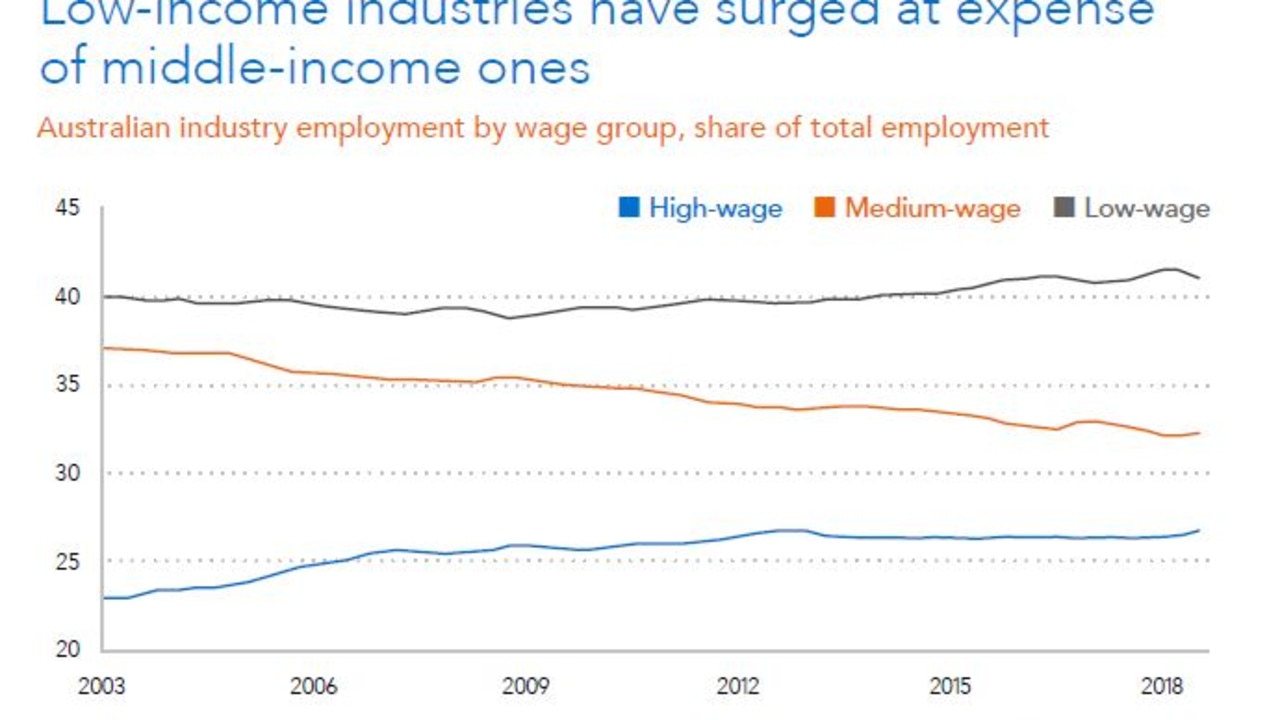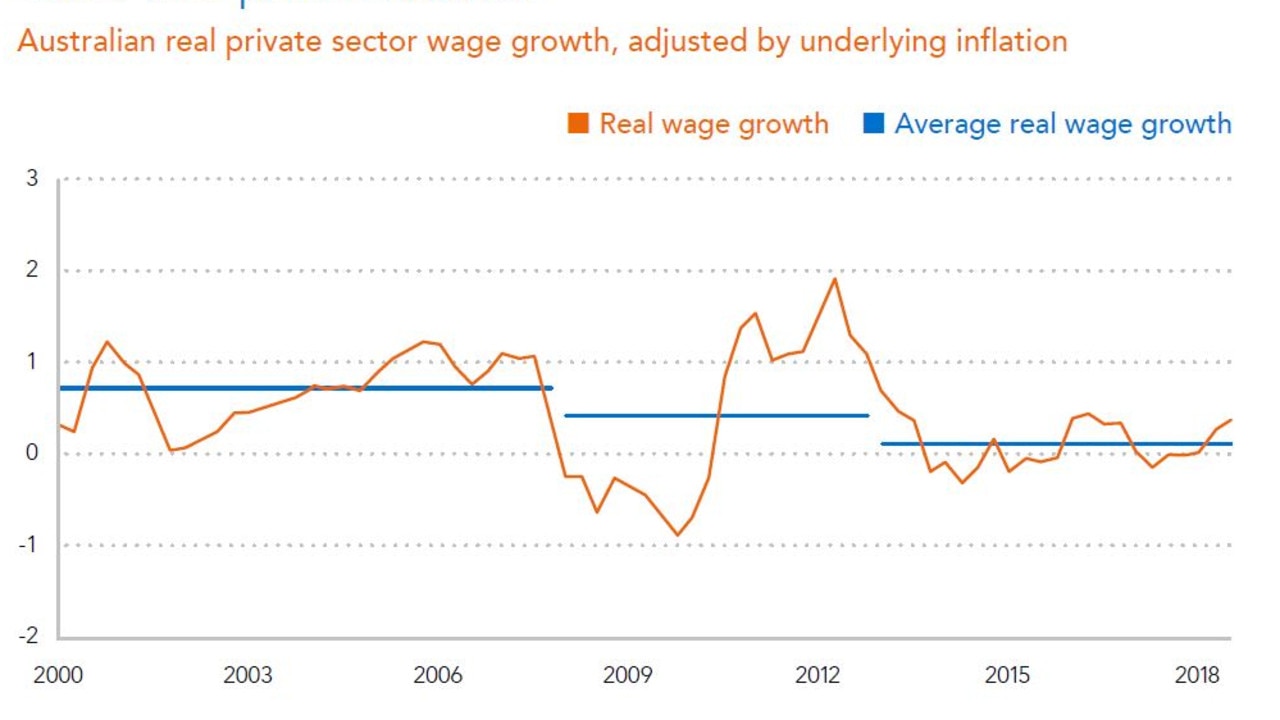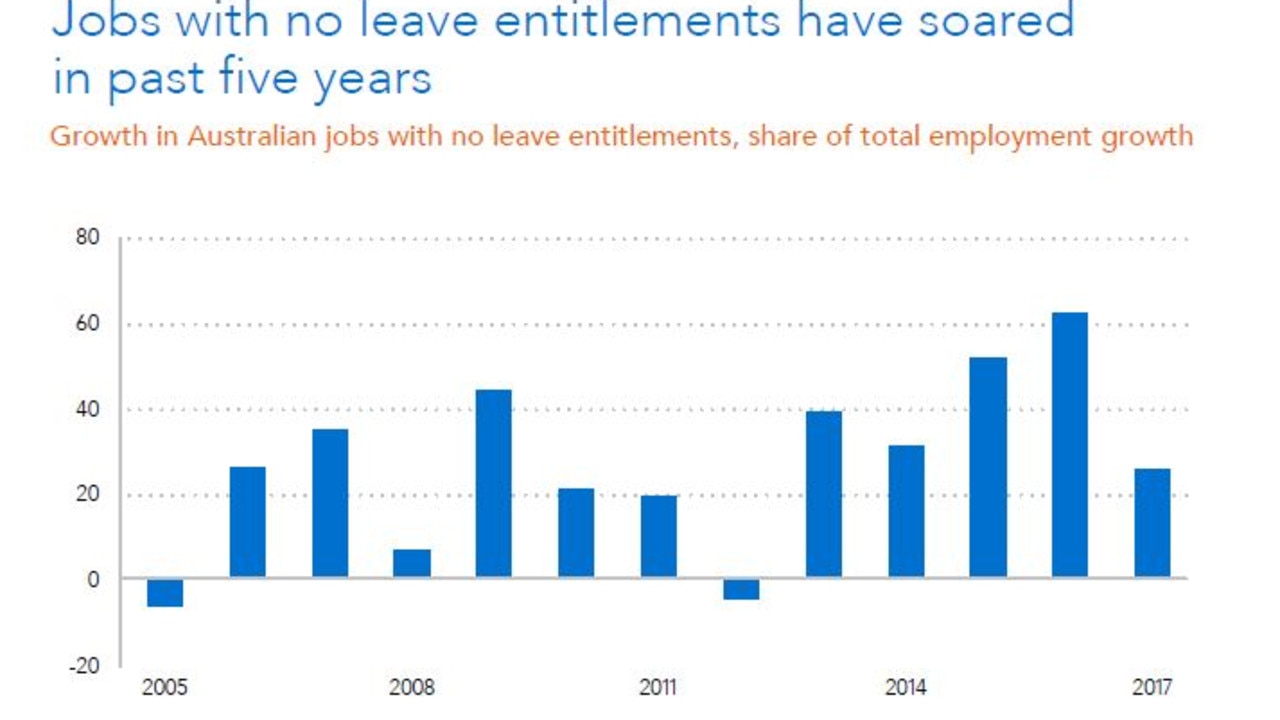The three reasons wages in Australia are not going up
The economy is ticking along nicely and unemployment is low, yet many Aussies are not seeing their wages increase. Here’s who to blame.
Australian wages have barely moved in the past five years and it’s not because your boss is a scrooge.
A new report is pointing the finger at three main factors and one group of Aussie workers is facing an even bigger challenge — jobs in their wage bracket are disappearing altogether.
According to the new research from jobs site Indeed, the reason you are being paid like it’s 2013 is due to a hangover from the mining boom, falling union membership and businesses unwilling to pay up.
Indeed’s senior economist Callam Pickering told news.com.au the hangover from the mining boom in the post-global financial crisis world pushed wages and costs so high for so long that businesses had spent years catching up.
But in a speech last week, Mr Pickering also said the boom may have saved Australia from a fate many other countries have experienced, with falling wages a consequence of declining union membership and businesses unwilling to give raises.
“In the absence of the commodities boom Australia would have shifted to a low-wage environment sooner,” he said.
“We certainly would have felt the burden of the GFC (global financial crisis) much greater.”
Grattan Institute fellow Brendan Coates agrees wages growth has been slow to adjust to a post-mining boom economy.
“Australia is not immune; we are coming to this party late because of the mining boom,” he said.
“The boom only masked some of the decline.”
At the same time as wages have been stagnating, there has been a surge in the number of high- and low-wage employees since 2008 but this has come at the expense of jobs in the middle-income bracket.

Mr Pickering said the huge growth in healthcare and education jobs in the past decade may account for the increase in low-wage roles.
The latest Australian Bureau of Statistics (ABS) quarterly data showed one million Aussies were working in education, up from 806,000 a decade ago. Meanwhile, a further 1.68 million work in healthcare, up from 1.09 million in 2008.
He said these jobs were typically seen by business as easily replaceable and created “reduced bargaining power” for many of these workers.
“You can imagine how difficult it can be to ask for a pay rise,” Mr Pickering said.
Since 2013, wage growth has risen 2.3 per cent a year in low-wage industries, 1.9 per cent in middle-income industries and 1.2 per cent in high-wage industries, according to the Indeed analysis.
But, overall, the average national wage is down about 0.5 per cent since 2013, when you take into account inflation and because the share of workers in lower-income jobs has increased, bringing down the average wage.

Melbourne University professorial research fellow Mark Wooden said wages at the bottom of the pay scale had been boosted by increases in the minimum wage handed down by the Fair Work Commission.
But it’s workers at the next level up who are standing still or going backwards.
“You would think that the pressure at the low end would start pressuring enterprise agreements,” he said.
“But it has surprised me how weak wage growth has been for so long and it’s true that enterprise bargaining is not delivering strong wage increases for anyone.”
Part-time jobs growth has accounted for almost 45 per cent of new jobs since 2013, with 43 per cent of new jobs offering no leave entitlements — something Prof Wooden says is a telltale sign of casual jobs growth.
Australia has one of the highest rates of workforce casualisation in the developed world. ABS data shows 25.1 per cent of workers were casual in 2017, up from a low of 23.7 per cent in 2012.

IMPACT OF MIGRATION
Unemployment in Australia is now hovering about 5 per cent but this has translated into very little in the way of wage growth, despite noted skills shortages in several parts of the economy.
During a panel discussion this week, economist Stephen Koukoulas said it was clear that importing workers under the 457 visa scheme was “not letting the market solve the problem” of skills shortages by incentivising workers to retrain and re-skill.
“Immigration is like a good red wine,” he said. “If you have too much too quickly you’ve got a problem.”
Prof Wooden said the influx of students and backpackers alongside skilled visa holders made it often cheaper not to employ Australians.
“It’s difficult to see how migration can’t have some depressive wage effects,” he said.



